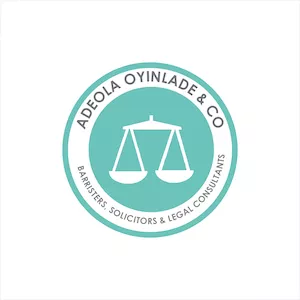- within Litigation and Mediation & Arbitration topic(s)
- with readers working within the Law Firm industries
- within Litigation and Mediation & Arbitration topic(s)
- with readers working within the Retail & Leisure industries
- within Litigation, Mediation & Arbitration, Family and Matrimonial and Energy and Natural Resources topic(s)
Introduction
The Land Use Act of 1978 revolutionized Nigeria's land ownership system by centralizing control and vesting title to all land in the governor of each state, who holds it in trust for the people. This marked a significant shift from the previous system, where land was primarily governed by customary land tenure, leading to confusion, inconsistencies and disputes in land transactions.
The state governor is responsible for land administration and has the authority to grant rights of occupancy, which serve as legal land titles. The governor allocates land for various uses, including residential, commercial, and agricultural purposes. These allocations provide legal recognition to landholders and form the basis for land transactions. The Act mandates that the consent of the governor is required for every land transfer or transaction. Be it an assignment of land or a mortgage, the consent of the governor must be obtained upon conclusion. Land disputes often arises in Nigeria either as result of competing claim to the ownership of a property or border disagreement by neighboring communities. This articles seeks to identify the sources of land disputes and proffer resolution to these disputes.
Laws Regulating Land Transactions in Nigeria
Land transactions in Nigeria are regulated by various laws which includes but not limited to;
- Constitution of the Federal Republic of Nigeria 1999
- Land Use Act 1978
- Statute of Frauds Act 1677
- Land Instrument Registration Law of various states
- Conveyancing Act 1881 & 1882
- Property and Conveyancing Law 1959
- Stamp Duties Act 2004
- Urban and Town Planning Law of various states or Act
Acquiring land ownership in Nigeria
Land can be acquired in Nigeria through any of the following means;
- Gift Inter-vivos: under Customary Law, it is an oral pronouncement by grantor in the presence of witnesses but the grantee is expected to take the interest during the lifetime of the grantor. If it is not under Customary Law, the gift must be by deed
- Adverse possession: arises when a person has been in continuous possession of another person's property without the owner's permission for a specified period. It can lead to the possessor acquiring legal title to the property, thereby extinguishing the original owner's rights.
- Partition of Family Land: Partition is a determination and sharing of family property amongst individual members. Each individual has absolute ownership over his portion. The partition can also be by the order of a court of law.
- First Settlement: where a person is the first to enter upon a virgin land with the intention of remaining on the land and excluding other persons from possession for a long and continuous period exercising acts of ownership, the law contemplates the person as the owner of the land.
- Purchase: the owner of a land can transfer his interest in the land property for a consideration. This is the most common means of acquiring land in Nigeria.
- Allocation of State Land by Government: in lieu of buying land from individuals or companies, another known way of acquiring land in Nigeria particularly in Lagos state, is allocation of land by the government. Which can be perfected by processing the Certificate of Occupancy.
- Devolution in A Will: this is where the owner of a landed property bequeath such property to the beneficiary of a will.1
Disputes over Ownership of Lands in Nigeria
In Nigeria, land disputes refer to conflicts over land ownership, possession, or boundaries between individuals, communities, or entities. These disputes often stem from issues like competing claims, unclear boundaries, land grabbing, inheritance disputes, and other related matters.
Factors leading to Land disputes in Nigeria
- Competing claim: different individuals may lay claim to the ownership of a landed property which could be as a result of multiple sale by the initial owner of the property.
- Revocation of Right of Occupancy: this often leads to legal battle between the government of a state empowered to revoke granted right of occupancy to citizens of the state where adequate compensation is not being paid or the right of occupancy was not revoked in public interest.
- Encroachments into adjoining Land: neighbors of adjoining land often disagree as to their borderlines. This is also one of the major causes of communal conflicts.
- Devolution of land: beneficiaries of a demised owner often contest the distribution of inherited land, especially when the owner dies intestate.
- Unauthorized Sales: When someone sells land they don't own, it frequently sparks disputes between the legitimate owners and innocent buyers who were unaware of the seller's lack of title.
- Inefficiency of Land management: Land ownership acquisition in Nigeria is often plagued by bureaucratic inefficiencies, including delays in title registration, illegal land allocations, uncompensated land revocations, and land use conflicts, which collectively hinder the process for landowners nationwide.
- Existence of Land grabbers: Land grabbing, which involves influential individuals or entities acquiring land through illicit means or corruption, poses a significant challenge in Nigeria's land acquisition process. However, stringent penalties have been established by law to deter such practices.2
How to Prove Land Ownership in Nigeria
Where the ownership of a land is in disputes, it can be proved through any of the following methods;
- Through traditional historical evidence.
- By providing the documents of title.
- Evidence of ownership and possession over an adequate period.
- Proving possession of adjacent and connected land in circumstances that make it probable that the owner of such adjacent and connected land owns the land in dispute.3
Recommended steps to be taken in determining Disputes relating to Land
Land disputes can be resolved by adhering to the prescribed steps below;
- Gather and verify necessary documents: all necessary documents relating to the property in question including title documents must be examined to ascertain one's title to the property. It's advisable to visit the Land Registry to have a first hand and verifiable information on the property.
- Engage a Surveyor to determine the Land measurement: where encroachment is being alleged or the disputes is as result of inability to ascertain the boundaries of neighboring communities, a professional surveyor can be engaged to survey the land in disputes.
- Give room for Alternative Dispute Resolution: Disputing parties can opt for mutual discussions to resolve their differences peacefully, avoiding further escalation. Additionally, traditional rulers or community leaders can facilitate mediation, helping to find a mutually acceptable solution.
- Consult a Legal Practitioner: If alternative dispute resolution is unsuccessful, consult an experienced real estate lawyer for expert guidance on the best course of action to take next.
- File a legal proceeding in court: If mediation is unsuccessful, the next step is to file a court action seeking a declaration of title to the disputed land. Such cases are typically brought before the High Court of the state where the land is located, specifically at the judicial division with jurisdiction over the area.
Prevention of Disputes in Land Transactions
- Engage Real Estate Experts: Always use professionals such as qualified lawyers, surveyors, and real estate agents when engaging in land transactions. These professionals can help verify land titles and ensure all legal processes are followed.
- Conduct due diligence: before the purchase of a landed property, it's important to investigate the vendor's title to the property to determine his right to deal with the property and to uncover the existence of any encumbrance on the property.
- Acquire necessary documents: Ensure you acquire necessary certificates, including the Certificate of Occupancy, Deed of Assignment, and Survey Plan.
- Registration of title document: Ensure that your land documents are immediately registered after acquisition as an unregistered deed of assignment only gives the purchaser an equitable interest in the property.
- Insurance: Given the high cost of legal proceedings, consider investing in legal indemnity insurance to mitigate potential expenses associated with future disputes.
Conclusion
Resolving land disputes in Nigeria requires a comprehensive understanding of the Land Use Act and other relevant laws governing land ownership and transactions. By identifying the sources of disputes, such as competing claims, boundary disagreements, and unauthorized sales, individuals and communities can take proactive steps to prevent and resolve conflicts. Gathering and verifying documents, engaging surveyors and legal practitioners, and exploring alternative dispute resolution methods can help resolve disputes efficiently. Moreover, conducting due diligence, acquiring necessary documents, and registering title documents can prevent disputes from arising. By following these guidelines and seeking professional advice, individuals can protect their land rights and interests, ensuring a smoother and more secure land acquisition process in Nigeria.
Footnotes
1 https://cjokoyelawview.com/law-421-land-law-i/topic-6-modes-of-acquisition-of-land
2 https://landproperty.ng/how-to-handle-land-disputes-in-nigeria-by-dennis-isong/
3 Idundun v okunmagba (1976) 9 & 10 s.c 27
The content of this article is intended to provide a general guide to the subject matter. Specialist advice should be sought about your specific circumstances.



